Abstract
Rates of leg amputations in diabetics are known to differ among racial/ethnic groups, but the relationship between family poverty and the risk of amputation has not been fully addressed. One-hundred-seven diabetic patients, all 50 or more years old and all from ZIP code tabulation area 778, underwent their first amputations at one hospital. Linear regression evaluated differences in age and atherosclerosis severity among African-American, Hispanic-American and other patients. chi2 statistics evaluated differences among African-American, Hispanic-American and other patients, with respect to sex and type of amputation. chi2 statistics evaluated differences among fractions of African- American, Hispanic-American and other patients, with respect to those residents 50 years old and older and those of poor families. Patient groups did not differ in regard to age, atherosclerosis severity, sex or type of amputation (P>0.05). The percents who were African-American, Hispanic-American, and other (33%, 21%, and 47%, respectively) differed markedly from those of persons 50 or more years old [13%, 7%, and 79%, (w=0.81, P<0.00001)] and mirrored those of poor families [37%, 19%, and 44% (w=0.08, P>0.05)]. Family poverty accounts for differences in diabetic amputation rates of African Americans, Hispanic Americans and other persons 50 or more years old.
Full text
PDF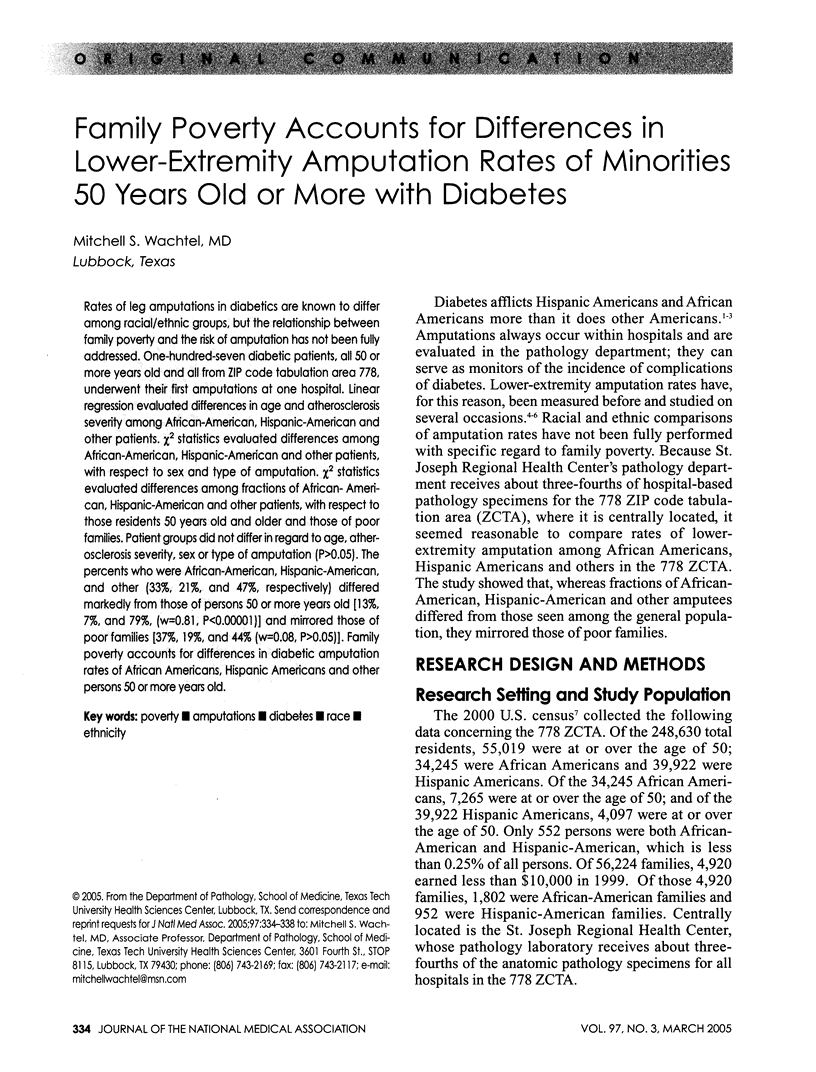
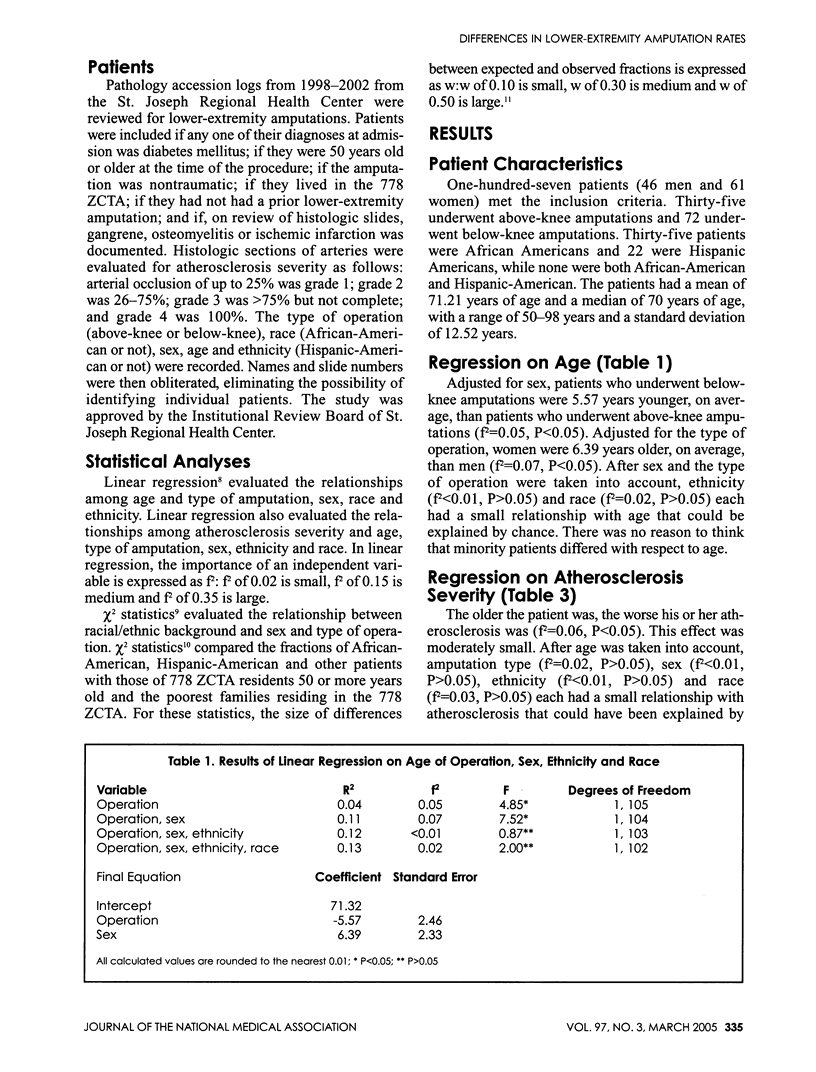
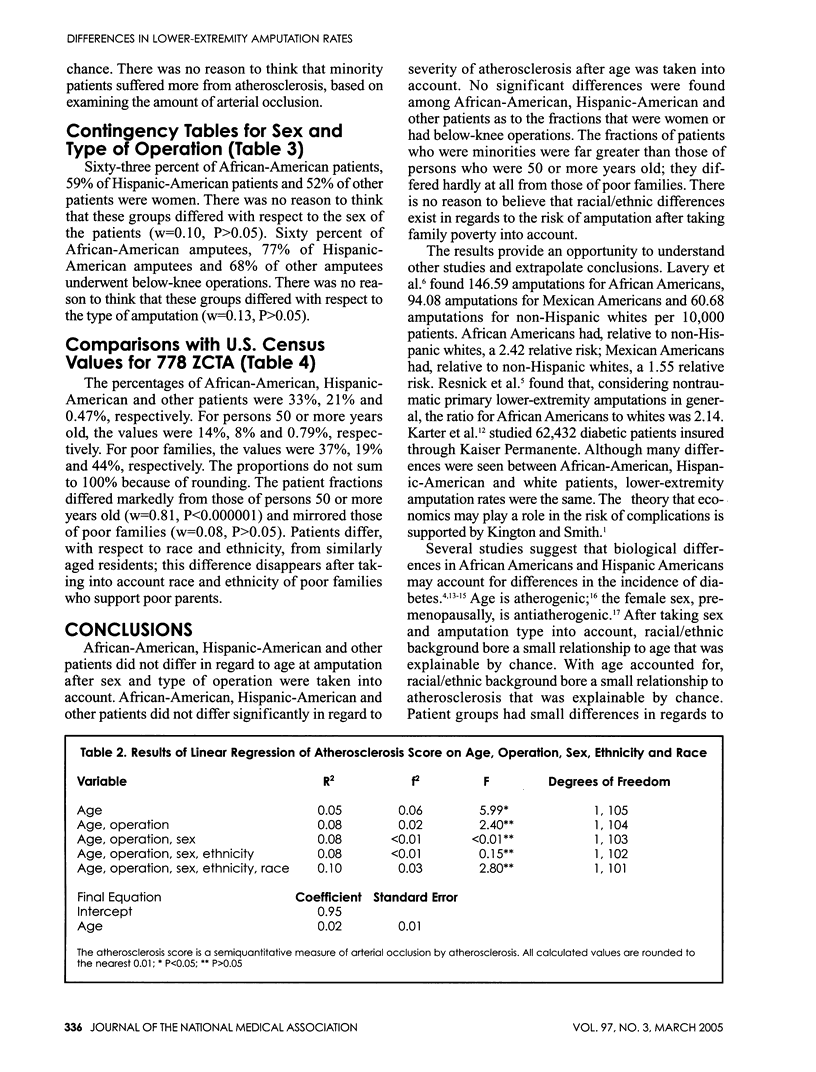
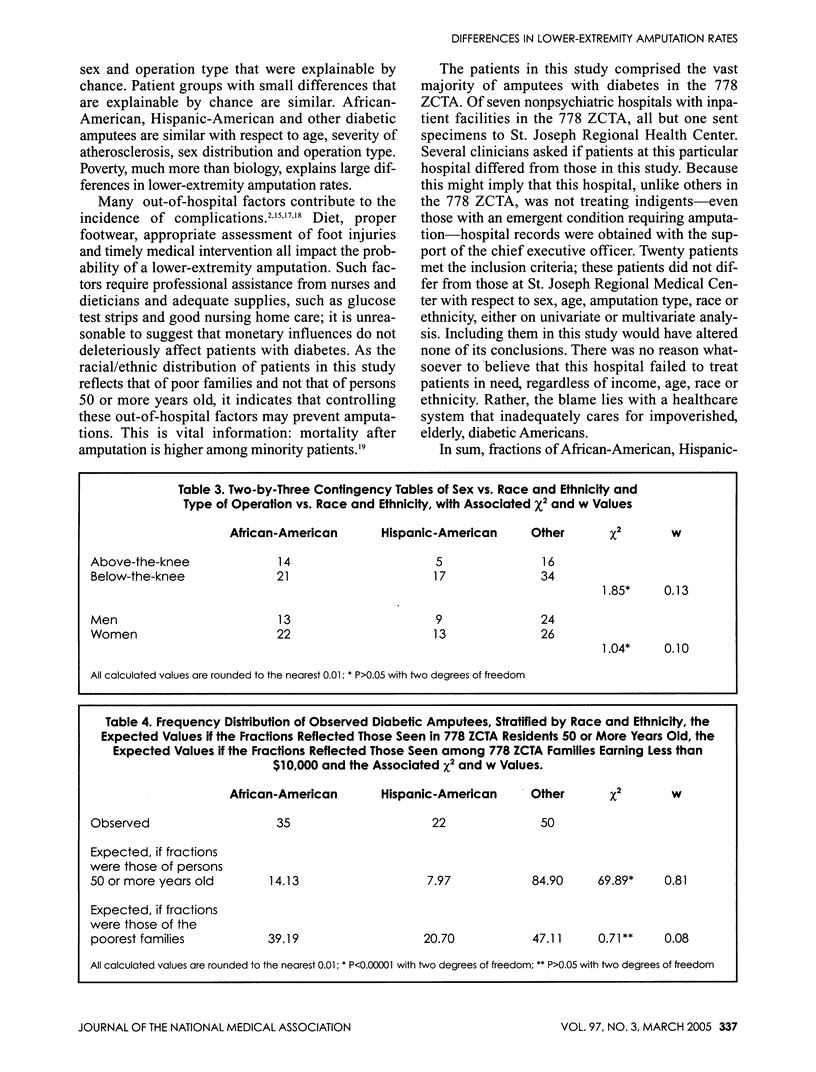
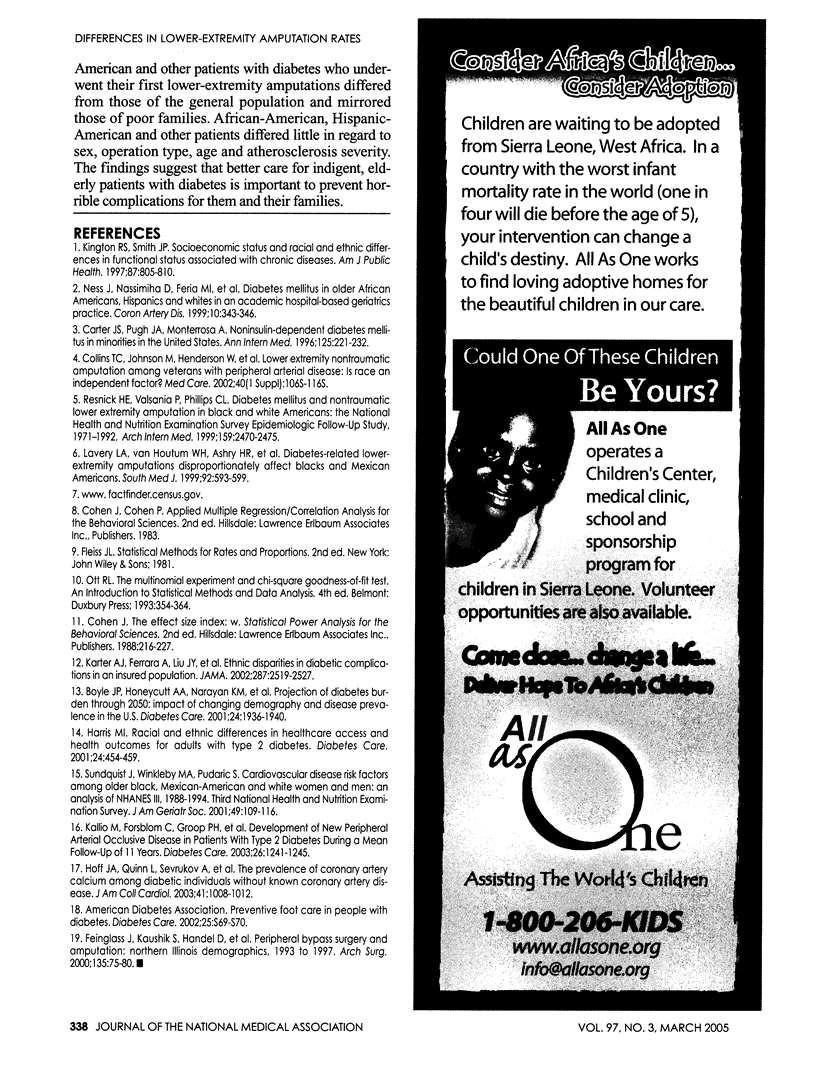
Selected References
These references are in PubMed. This may not be the complete list of references from this article.
- Boyle J. P., Honeycutt A. A., Narayan K. M., Hoerger T. J., Geiss L. S., Chen H., Thompson T. J. Projection of diabetes burden through 2050: impact of changing demography and disease prevalence in the U.S. Diabetes Care. 2001 Nov;24(11):1936–1940. doi: 10.2337/diacare.24.11.1936. [DOI] [PubMed] [Google Scholar]
- Carter J. S., Pugh J. A., Monterrosa A. Non-insulin-dependent diabetes mellitus in minorities in the United States. Ann Intern Med. 1996 Aug 1;125(3):221–232. doi: 10.7326/0003-4819-125-3-199608010-00011. [DOI] [PubMed] [Google Scholar]
- Feinglass J., Kaushik S., Handel D., Kosifas A., Martin G. J., Pearce W. H. Peripheral bypass surgery and amputation: northern Illinois demographics, 1993 to 1997. Arch Surg. 2000 Jan;135(1):75–80. doi: 10.1001/archsurg.135.1.75. [DOI] [PubMed] [Google Scholar]
- Harris M. I. Racial and ethnic differences in health care access and health outcomes for adults with type 2 diabetes. Diabetes Care. 2001 Mar;24(3):454–459. doi: 10.2337/diacare.24.3.454. [DOI] [PubMed] [Google Scholar]
- Hoff Julie Anne, Quinn Lauretta, Sevrukov Alexander, Lipton Rebecca B., Daviglus Martha, Garside Daniel B., Ajmere Niraj K., Gandhi Sanjay, Kondos George T. The prevalence of coronary artery calcium among diabetic individuals without known coronary artery disease. J Am Coll Cardiol. 2003 Mar 19;41(6):1008–1012. doi: 10.1016/s0735-1097(02)02975-3. [DOI] [PubMed] [Google Scholar]
- Kallio Milla, Forsblom Carol, Groop Per-Henrik, Groop Leif, Lepäntalo Mauri. Development of new peripheral arterial occlusive disease in patients with type 2 diabetes during a mean follow-up of 11 years. Diabetes Care. 2003 Apr;26(4):1241–1245. doi: 10.2337/diacare.26.4.1241. [DOI] [PubMed] [Google Scholar]
- Karter Andrew J., Ferrara Assiamira, Liu Jennifer Y., Moffet Howard H., Ackerson Lynn M., Selby Joe V. Ethnic disparities in diabetic complications in an insured population. JAMA. 2002 May 15;287(19):2519–2527. doi: 10.1001/jama.287.19.2519. [DOI] [PubMed] [Google Scholar]
- Kington R. S., Smith J. P. Socioeconomic status and racial and ethnic differences in functional status associated with chronic diseases. Am J Public Health. 1997 May;87(5):805–810. doi: 10.2105/ajph.87.5.805. [DOI] [PMC free article] [PubMed] [Google Scholar]
- Lavery L. A., van Houtum W. H., Ashry H. R., Armstrong D. G., Pugh J. A. Diabetes-related lower-extremity amputations disproportionately affect Blacks and Mexican Americans. South Med J. 1999 Jun;92(6):593–599. doi: 10.1097/00007611-199906000-00008. [DOI] [PubMed] [Google Scholar]
- Ness J., Nassimiha D., Feria M. I., Aronow W. S. Diabetes mellitus in older African-Americans, Hispanics, and whites in an academic hospital-based geriatrics practice. Coron Artery Dis. 1999 Jul;10(5):343–346. doi: 10.1097/00019501-199907000-00012. [DOI] [PubMed] [Google Scholar]
- Resnick H. E., Valsania P., Phillips C. L. Diabetes mellitus and nontraumatic lower extremity amputation in black and white Americans: the National Health and Nutrition Examination Survey Epidemiologic Follow-up Study, 1971-1992. Arch Intern Med. 1999 Nov 8;159(20):2470–2475. doi: 10.1001/archinte.159.20.2470. [DOI] [PubMed] [Google Scholar]
- Sundquist J., Winkleby M. A., Pudaric S. Cardiovascular disease risk factors among older black, Mexican-American, and white women and men: an analysis of NHANES III, 1988-1994. Third National Health and Nutrition Examination Survey. J Am Geriatr Soc. 2001 Feb;49(2):109–116. doi: 10.1046/j.1532-5415.2001.49030.x. [DOI] [PubMed] [Google Scholar]


